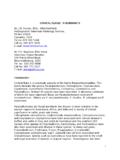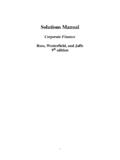Transcription of Document prepare pour Lower intermediate …
1 New Standpoints - 51 - February 201221 Victorian society Dickens worksheetIntroductIonThe year 2012 is the 200th anniversary of Charles Dickens's birth. Not only was Dickens a brilliant storyteller, but he was also an invaluable witness of his time. This episode of Oliver Twist, adapted as a comic strip, will give pupils a glimpse of orphanages and workhouses in Victorian England. No doubt they will empathise with the culture: Charles Dickens Oliver Twist workhouses, child labour and regulations in the19th century. vocabulary and Grammar in context: making hypotheses be going to + V the simple past passive voice vocabulary related to living and working A transparency of the comic strip and an OHP An Internet access for pupils New Standpoints Live, Tracks 25-28 A copy of the worksheet per pupil Copies of the full comic strip speaking - Production a2: recapitulating, making sentences from keywords, giving opinions. Interaction a2: role-playing an interview on a specific topic.
2 Listening a2: catching the main points from a short recording. reading a2: reading a short comic strip. a2+: reading for information on the Internet. Writing a2: adapting a comic strip into the pages of a Project After listening to the beginning of an episode of Oliver Twist, pupils complete the speech bubbles and banners in a comic strip; in groups they read short texts from the web about Charles Dickens, child labour and workhouses. Then, they re-order the last frames of the comic strip and imagine the end of the episode. Finally, they perform an interview and write a page from Oliver Twist s cile clavilier teaches at coll ge La nacelle, corbeil-essonnes (91). she is also a teacher trainer and a regular contributor to new 1. the beginning of the story classworka. Getting acquainted with oliver listeningHand out copies of the worksheet. Have the class listen to Tracks 25 and 26 and say as much as they can. It s about a novel by Charles Dickens.
3 The story takes place in England, north of London, in 1833. A baby is born, but his mother dies. There's no father. The man who is speaking must be a doctor. The doctor calls the baby Oliver Twist. As pupils recap, write on the board: Oliver Twist mother dies no father: Oliver is an ? boy and play track 25 again to help them spot and understand orphan . Project the first two frames of the comic strip. Pupils listen to Track 26 again and complete the bubbles. TASK 1Ab. What s Going to Happen next? brainstormingElicit guesses about what is going to happen next. I think Oliver is going to live in an orphanage. Perhaps he is going to be adopted. He is probably going to From the orphanage to the Workhouse listeningPlay Track 27 and let pupils say as much as they can. Project Frames 3 to 8. Play Track 27 again and have pupils listen and complete TASK 2. end of the story reading Group WorkProject the last six frames, jumbled.
4 TASK 2A In pairs, pupils re-order the frames. They will have to reconstruct the logical sequence of the narrative as they link the frames together: ex. The boy makes fun of Oliver, so Oliver is mad at him. But Mr Sowerberry catches Oliver and he is furious at Oliver so he decides TASK 2B provides some reading help. Have the class focus on the last frame and anticipate what may happen next. I think Oliver is going to find/be adopted by a nice family. Maybe he s going to be caught by the police and sent to and listening to the whole episodeDistribute copies of the complete comic strip from our website. Pupils read the text silently while they listen to 3. charles dickens, Workhouses and children in victorian times Group Work on lineDivide the class into three groups. Group A works on a biography of Charles Dickens, Group B on children in Victorian times and Group C on workhouses. TASK 3 Go from group to group to help as needed.
5 Groups report to the class. FInal tasksa. an interview Pair WorkPupils work in pairs to role-play an interview with a woman aged 45 in 1874, just after the Factory Act (that declared child labour under 10 illegal) was passed. TASK 4Ab. Writing a diaryPupils imagine the page of Oliver's diary recording the episode they studied. TASK 4 Boliver twistteacHer s PaGeLower intermediateLower intermediateLower intermediateDocument prepare pour22 New Standpoints - 51 - February 2012worksheet Victorian society Dickensstudent WorksHeet TASK 1a. Listen and write the dialogue in the speech listen and write or circle the correct answer. Frame 31. Oliver's age: _____2. the woman says:a. You re not old enough to go to You re old enough to go to You re tall enough to go to the woman wants oliver:a. to walk to a new to work in her to go to a complete: Oliver accepts /doesn t accept because he says: _____ _____ _____ Frame 41.
6 Oliver is at: a. the orphanage. b. the workhouse. c. the hospital2. oliver is there to:a. give people food and work with 51. I m still hungry. means:a. I haven't eaten enough. b. I ve eaten I ve eaten too much. 2. The other children s situation: _____Frames 6 and 71. a. Oliver is going to One of the children thinks Oliver is _____2. Mr bumble says: You re in double / trouble / table. It means:a. You are going to have You are You are Place where Oliver is: _____b. How long for: _____c. Reason: _____ _____ d. There, Oliver has nothing to _____e. Mr Sowerberry works in a _____2. complete:Oliver went to a cell _____ he asked for more Write two words with the /sel/ pronunciation: _____ _____Which word is a verb? _____Which word is a noun? _____Document prepare pourNew Standpoints - 51 - February 201223 Victorian society Dickens worksheetb. complete with the correct words:A _____ is a small room in a complete the sentences about oliver, using the verbs (in the passive voice) first in the present, then in the past.
7 Sell send put be Oliver _____ in a small town north of Oliver _____ in an orphanage. b. Oliver _____ to a workhouse. b. Oliver _____ to Mr Sowerberry. b. _____TASK 2a. Put the frames back into the correct order. be ready to narrate the different events using: first, then, so, because. What is a coffin? un couffin un coffre un cercueil un lit d appoint2. Who says: Oliver has no mother! Oliver has no father! ? one of Oliver s friends a boy working in Mr Sowerberry s shop Mr Sowerberry s son3. List three facts showing that Oliver was badly treated at Mr Sowerberry _____ b. _____c. _____4. the workhouse or Mr sowerberry s house: which place is worse? How do you know?_____ _____ _____ _____Document prepare pour24 New Standpoints - 51 - February 2012worksheet Victorian society DickensTASK 3 Work in groups and visit the following webpages. Get ready to report to the Go to: Choose four interesting events from Dickens's Find a fact showing that Dickens was famous both when he was alive and after he was What happened to Dickens when he was a child?
8 How did that influence his works and ideas? _____b. Go to: , then click on Children in Victorian Britain , then on Children at work and Children in factories . Give examples of differences between rich and poor families in Dickens's Choose a picture that illustrates children's conditions. Be ready to explain why. Examples of jobs?_____ New laws to protect children?_____c. Go to: What was a workhouse?_____ Describe the living conditions Draw a picture or find one and explain the different parts of the 4a. an : the Factory Act that declared child labour illegal under 10 has just been passed. A journalist interviews a woman aged 45 who was an orphan and who lived in a workhouse until she was in pairs, read your Id cards and get ready to role-play the card 1 the journalistIntroduce the questions about: the reason why the woman was sent to a workhouse. the kind of work she did. the food she had.
9 The clothes she wore. her working hours. the most difficult thing in the workhouse. her opinion about the Factory card 2 the Womananswer the questions about your past life: workhouse at 9; parents died in a coal mine older brother (aged 11) was sent to the same workhouse. cleaned the road, worked in shops and textile factories. same food every day: soup, bread, sometimes carrots and potatoes but not enough hungry all the time. a uniform: an old black dress, shoes that were too small. working hours: 7:00 am 7:00 at night a 15-minute break for lunch. everything was difficult: no family (couldn t see your brother), no comfort, no food, no water, no sleep often diseases and epidemics many people died. how children should be treated: work school to learn 10 hours' work a day is still too Writing a diaryImagine Oliver Twist went to school and learned to read and write. Choose an episode and write his diary in the first person.
10 Explain what happened to you (the transfer to the workhouse, the work, the request for food, the punishment to the cell, the stay at Mr Sowerberry s, the fight, and finally the escape). Describe how you felt and what your hopes prepare pourNew Standpoints - 51 - February 201225 Victorian society Dickens worksheetsolutionsTASK 1a. Frame 1 Congratulations, Agnes, it s a want to see my baby before I love you, my baby. Good-bye!Frame 2: She s dead. Take the baby. Let s call him Oliver. Ol-iver Frame 31. 9 2. b 3. c 4. accepts: Yes, Ma'am. Good-bye Frame 41. b 2. b Frame 51. a 2. hungry 6 + ask for more b. crazy 2. trouble / aFrame in a cell b. a week c. he asked for more d. eat e. shop 2. because3. a. sell (V) cell (N)b. cell was born 2. was put 3. was sent 4. was sold TASK 2a. Top row: 6, 3, 2 Bottom row: 5, 1, 4 First Oliver arrives at Sowerberry's shop. Then a boy makes fun of him. Oliver is mad at him but Mr Sowerberry catches Oliver and he wants to send him back to the workhouse because he's furious at him.






